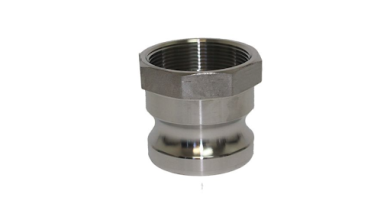Business Insurance UK – What Types of Cover Do You Need?

The cost of Business Insurance UK varies depending on the type of business you have, the amount of cover you need and whether you are legally required to carry it. However, regardless of the type of business you run, you need to carry at least some type of cover. Read on to find out about different types of cover and how much they cost.
Cost of business insurance
While the cost of business insurance can range from a few hundred pounds to thousands, it is not impossible to find a policy at an affordable price. The type of business you run can make a difference in the premium you pay. Some businesses require more coverage than others, and some may even have unique properties that require a different insurance policy. Understanding these factors is important for securing the best protection at the most affordable price.
Depending on the type of business, revenue, and number of employees, business insurance costs can vary widely. A general rule is to keep the insurance cost to two to three percent of your total annual income. This is an acceptable range for most businesses, although those in high-risk professions may have to spend more. Compare quotes from different insurers before making a decision.
In addition to liability insurance, you should also consider purchasing employer’s liability insurance. This is a legal requirement if you employ workers who are not family members. Failure to do so can lead to a fine of up to PS2,500 a day. But there are other types of insurance that you may want to consider, too.
Depending on the type of business you have, you may need public liability insurance, which covers you against claims of public injury. It can also cover other types of liability, such as product liability and employers’ liability. Many businesses provide a high quality product or service to customers, so they may be at risk for third-party claims.
Business liability insurance is necessary for many different reasons. For example, it can cover the costs of mistakes made by employees, property damage, and theft. It provides a safety net for your business, and it is easy to forget about it as you go about your everyday business. However, it is crucial to consider the risks your business faces, whether it is due to a mistake or an accident.
Types of cover
Business insurance can protect you from natural disasters, drops in sales, and other unexpected crises. Small Business Trends interviewed CyberPolicy’s Keith Moore to explain the different types of business insurance cover and why they are so important. Below are some examples of different types of business insurance cover. You should choose the right insurance for your business, depending on the type of work you do.
Choosing the right type of cover for your business can be a challenge. There are many types of cover available ranging from basic liability and property insurance to complete protection and more. Some policies specialize in specific industries, while others offer a wide range of add-ons to fit your specific needs. If you’re running a small business, you’ll need the right type of insurance to protect your assets, and the right insurance partner can help match your needs.
The most common type of business insurance is liability insurance, which pays out for damages caused by a business’s products. This type of insurance is important for manufacturing companies, but it can also be beneficial for businesses that provide services or knowledge. It can also cover legal costs. These insurances are a good idea for any business that wants to protect its assets and avoid being sued by customers or other stakeholders.
Business insurance is necessary for any type of business and should be chosen carefully. There are many different types of business insurance, and each one will cover different scenarios. The Hiscox team can help you choose the right one for your business. For example, if your company offers a service, public liability insurance may be the best fit.
Benefits
Business insurance is a vital part of running a business. The small premiums you pay can protect your company from huge losses. This type of coverage protects your assets against fire, theft, natural disaster, and legal liability. It can also protect you if you lose business because of an employee’s negligence or if your company is involved in an automobile accident.
Small businesses need to assess their risks and liability in order to find the right type of coverage. An insurance agent is an excellent source of advice. An insurance agent specializes in your industry and will be interested in your needs. Make sure to compare quotes from multiple agents to find the best deal. It’s also important to reassess your insurance every year. Be sure to contact your insurance agent if you’ve made changes to your business and need to adjust your coverage.
Small businesses also need to set aside an amount for their business insurance. Every business is different, so the amount you set aside for this protection will vary. The amount you spend will depend on the size of your business and the risk it’s exposed to. Once you’ve determined the amount you’re willing to pay for business insurance, you’ll be ready to compare rates and select the policy that fits your needs.
When choosing a business insurance policy, ask for multiple quotes from several different insurance companies and compare the coverage levels and depths of coverage. You may also qualify for a multi-policy discount if you have multiple insurance policies through the same carrier. In addition, consider integrating your business insurance with your payroll service, such as Paychex, to improve your cash flow and avoid year-end balloon payments.
In addition to protecting your assets, insurance helps you avoid the costs of major disasters. If you or a key person in your business dies unexpectedly, insurance can help replace that role. This coverage can be vital to the success of your business. Without it, you might not be able to find a replacement role quickly enough, which could impact the revenue you earn.



